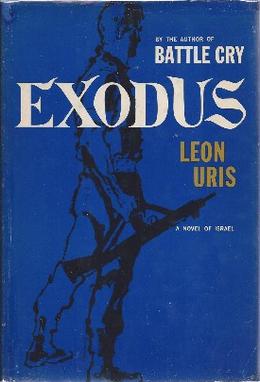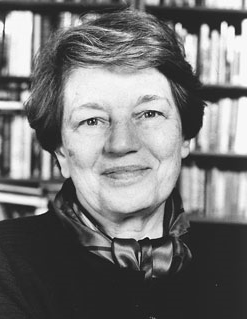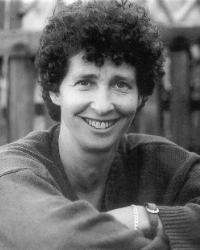
Gone with the Wind is a novel by American writer Margaret Mitchell, first published in 1936. The story is set in Clayton County and Atlanta, both in Georgia, during the American Civil War and Reconstruction Era. It depicts the struggles of young Scarlett O'Hara, the spoiled daughter of a well-to-do plantation owner, who must use every means at her disposal to claw her way out of poverty following Sherman's destructive "March to the Sea." This historical novel features a coming-of-age story, with the title taken from the poem "Non Sum Qualis eram Bonae Sub Regno Cynarae", written by Ernest Dowson.
Canadian literature is written in several languages including English, French, and to some degree various Indigenous languages. It is often divided into French- and English-language literatures, which are rooted in the literary traditions of France and Britain, respectively. The earliest Canadian narratives were of travel and exploration.

William Ormond Mitchell, was a Canadian writer and broadcaster. His "best-loved" novel is Who Has Seen the Wind (1947), which portrays life on the Canadian Prairies from the point of view of a small boy and sold almost a million copies in Canada. As a broadcaster, he is known for his radio series Jake and the Kid, which aired on CBC Radio between 1950 and 1956 and was also about life on the Prairies.
Sharon Butala is a Canadian writer and novelist.
Patrick Frank Friesen is a Canadian author born in Steinbach, Manitoba, primarily known for his poetry and stage plays beginning in the 1970s.

Katie Scarlett O'Hara is a fictional character and the protagonist in Margaret Mitchell's 1936 novel Gone with the Wind and in the 1939 film of the same name, where she is portrayed by Vivien Leigh. She also is the main character in the 1970 musical Scarlett and the 1991 book Scarlett, a sequel to Gone with the Wind that was written by Alexandra Ripley and adapted for a television mini-series in 1994. During early drafts of the original novel, Mitchell referred to her heroine as "Pansy", and did not decide on the name "Scarlett" until just before the novel went to print. PBS has called O'Hara "quite possibly the most famous female character in American history..."

The music of the Canadian Prairies includes the music of the Prairie Provinces of Manitoba, Saskatchewan and Alberta.

Exodus is a historical novel by American novelist Leon Uris about the founding of the State of Israel beginning with a compressed retelling of the voyages of the 1947 immigration ship Exodus and describing the histories of the various main characters and the ties of their personal lives to the birth of the new Jewish state.

Miriam Toews is a Canadian writer and author of nine books, including A Complicated Kindness (2004), All My Puny Sorrows (2014), and Women Talking (2018). She has won a number of literary prizes including the Governor General's Award for Fiction and the Writers' Trust Engel/Findley Award for her body of work. Toews is also a three-time finalist for the Scotiabank Giller Prize and a two-time winner of the Rogers Writers' Trust Fiction Prize.

Allan Winton King,, was a Canadian film director.

The Stone Angel is a novel by the Canadian writer Margaret Laurence. First published in 1964 by McClelland and Stewart, it is perhaps the best-known of Laurence's series of five novels set in the fictitious town of Manawaka, Manitoba. In parallel narratives set in the past and the present-day, The Stone Angel tells the story of Hagar Currie Shipley. In the present, 90-year-old Hagar struggles against being put in a nursing home, which she sees as a symbol of death. This narrative alternates with Hagar looking back at her life.

Mavis Leslie de Trafford Gallant,, née Young, was a Canadian writer who spent much of her life and career in France. Best known as a short story writer, she also published novels, plays and essays.

Look Homeward, Angel: A Story of the Buried Life is a 1929 novel by Thomas Wolfe. It is Wolfe's first novel, and is considered a highly autobiographical American coming-of-age story. The character of Eugene Gant is generally believed to be a depiction of Wolfe himself. The novel briefly recounts Eugene's father's early life, but primarily covers the span of time from Eugene's birth in 1900 to his definitive departure from home at the age of 19. The setting is a fictionalization of his home town of Asheville, North Carolina, called Altamont in the novel.

Zarqa Nawaz is a Canadian creator and producer for film and television, a published author, public speaker, journalist, and former broadcaster.
Eldon Davis Rathburn was a Canadian film composer who scored over 250 films during his thirty-year tenure as a staff composer at the National Film Board of Canada. Known as "the dean of Canadian film composers", Rathburn composed music for documentaries, short films, as well as such feature films as Drylanders (1963), Nobody Waved Good-bye (1964), Waiting for Caroline (1969), Cold Journey (1975), and Who Has Seen the Wind (1977). Rathburn was the subject of a 1995 NFB documentary by Louis Hone titled Eldon Rathburn: They Shoot... He Scores.
Anne Marriott was a Canadian writer who won the Governor General's Award for her book Calling Adventurers! "She was renowned especially for the narrative poem The Wind, Our Enemy," which she wrote while still in her twenties.

Nancy Richler was a Canadian novelist. Her novels won two international awards and were shortlisted for three others; Richler was also shortlisted for the Canadian Booksellers Association Author of the Year award in 2013.

Marcello Di Cintio is a Canadian writer who has published several books, and many articles and essays in newspapers and magazines across North America and in the United Kingdom. In addition, he has worked as Writer-in-Residence at the University of Calgary, the Calgary Public Library, and the Palestine Writing Workshop.
Who Has Seen the Wind is a 1977 Canadian drama film directed by Allan King and written by Patricia Watson. The film is an adaptation of W. O. Mitchell's influential novel Who Has Seen the Wind. It was the first narrative feature film ever directed by King, who was previously known primarily as a documentary filmmaker.
David Alexander Robertson is a Canadian author and public speaker from Winnipeg, Manitoba. He has published over 25 books across a variety of genres and is a two-time winner of the Governor General's Literary Award His first novel, The Evolution of Alice, was published in 2014. Robertson is a member of the Norway House Cree Nation.













